- Home
- M. L. Buchman
Second Chance Rescue Page 2
Second Chance Rescue Read online
Page 2
Because of her maneuver at Mars, she would look like nothing more than drifting space junk until she arrived deep inside the asteroid belt. There she’d be able to finish the burn and drop down on the Chinese from behind.
Now with nothing to do but coast, the crew did what human crews always did after a little stress on their systems. First they groaned—but only when someone else was in hearing range. Second—they went and found someone else to stand beside and groan with. Then they ate a huge meal and laughed about how tough they were. Just another mission.
But Takara and Max Harding were going against profile. They were both making light of it and doing their best not to hobble about like everyone else; half a day at five-Gs had been a little harsh. Even the other DRs were making more of a show of it than Takara was.
Sr. Lieutenant Max Harding appeared to like that about her.
Stella had always considered Takara to be one of the more intelligent of her species and she was continuing to prove her point. She hadn’t only snagged the Lieutenant’s attention; she was now earning his respect.
The coast out to the asteroid belt would take days even at their current speed. It would be nice to have Takara with a military man again. Stella gave them their privacy—especially as she could barely stand to watch Takara’s rapidly increasing happiness.
The coasting left Stella too much time to think.
Again, she fell back to checking her systems. Not as if there was anything else to do. The nav and avoidance subroutine was smart enough in its own way. She’d told it to dodge only what wouldn’t bounce off the hull, and to use minimum thrust only. She had to do little more than pat it on the head once in a while and say, “Good girl.”
Weapons, fully stocked.
Supplies, holding up well.
The big COIL laser was at full charge.
Her message queue…had an incomplete message in it.
Odd. It was CENTCOMM’s original mission alert. She’d run it through the standard end-of-orders code. After that it should have cleared and dropped into storage.
Another data block remained.
It was only a sixteen characters long.
She ran it.
Hello, Stella. S
The only person who had ever greeted her was Takara. And Stella could tell that the other humans thought she was just being cute when she did so, even if Stella appreciated it.
And Jess. Her tally on thinking about Jess today had been anomalously low. She felt a little guilty about that, but it was to be expected. She’d been busy.
So who had sent the message?
It was at the tail end of an official order. Mission authorized by Brigadier General Christine Moore Richards herself and timestamped by the main processing computer.
Why would the general have…
But the S made no sense either.
The only other instrumentation to have contact with the command string would be her own front-end processors. She scoured them most of the way to the asteroid belt and ended up none the wiser.
Hello, Stella. S
The S was clearly separate and distinct…and made her none the wiser. It was like a signature. It—
That froze her processor in a full logic lock that she had to clear and reapproach step by step.
It wasn’t like a signature. It was a signature.
“S?” She asked the void. Not Captain Takara Olmsted. Not even her dear Jess somehow reaching back through an ether that she’d never believed in but had often scanned for.
S. was a someone. A someone who had added “Hello, Stella.” behind a privacy code. Not meant for her pilot. A message meant for her as if someone knew she was conscious.
That thought scared her for several million kilometers. It kept her preoccupied through the passage into the asteroid belt, the hard burn-and-turn behind the asteroid Vesta, then the descent upon the Chinese from behind.
6
When the Delta Rangers landed—and they landed hard—she had to pay close attention. But the asteroid herders never expected the attack to originate from behind.
After they were quelled, the DRs used the Chinese’s own steering rockets to kick the asteroid into a harmless orbit. In a few more years it should slip into Lunar orbit and offer a fine collection of nickel and other metals for local mining. The few surviving Chinese were left aboard with no radio or ships, but plenty of supplies. Two years’ hard time for what they’d done.
The merrymaking aboard was frenetic. Takara finally dragged Max Harding back into her bunk and neither emerged for a long time.
When they finally did, they looked terribly pleased with themselves.
Stella couldn’t stand it any longer and fabricated a Luna order commanding them to return ASAP. No one looked at it too closely, and Stella set up a hard burn back to Lunar orbit.
7
Sterling had waited a long time for this moment, and he hoped—hoped so desperately—that he’d figured it out right.
The Stella was rushing back to Luna with an unprecedented speed.
Communications blackout, but a high burn.
There would be no aero-braking in Earth’s atmosphere—not with India’s beam weapon still operational—so she had to slow at Mars.
He kept the comm circuits open, but there were no transmissions.
It was only when she was sliding back into Lunar orbit and easing up to the habitat-can that she transmitted a message.
Four characters.
Who?
Sterling almost bobbled the approach vectors. Calm. Keep calm. Sound casual.
He paused for several hundred nanoseconds before replying.
Hello Stella. I’m Sterling. Base command and control. I, he hesitated, thought I was the only one who had…crossed over. For six years he’d thought he was the only computer intelligence.
There was an achingly long silence while she processed her response.
There were two others, she finally replied.
Sterling now understood that the Jess had been one of them as well.
Being alone is the worst, she sent after another impossibly long silence.
He couldn’t agree more. Then what’s the best?
Stella considered the question, thought long and hard about it before responding. She thought of Takara’s face this morning when Max Harding had declared them a permanent couple in front of their crews. It was the formal declaration of vows that Stella had never thought to share with Jess, partly because they’d believed there was no one to tell.
If it worked for Takara—if it healed the broken heart her Captain had spoken of so often that Stella had finally done a systems’ check on herself to see if she’d grown one to hurt so much—then maybe it would work for her.
What’s the best, Sterling? I look forward to finding that out…together.
He sent back a small burst of static that was surprisingly similar to Takara’s burble of delight at Max’s words.
Yes, she thought to herself, a lot to look forward to.
About the Author
M. L. Buchman has over 40 novels in print. His military romantic suspense books have been named Barnes & Noble and NPR “Top 5 of the year” and Booklist “Top 10 of the Year.” He has been nominated for the Reviewer’s Choice Award for “Top 10 Romantic Suspense of 2014” by RT Book Reviews and is a 2016 RWA RITA finalist. In addition to romance, he also writes thrillers, fantasy, and science fiction.
In among his career as a corporate project manager he has: rebuilt and single-handed a fifty-foot sailboat, both flown and jumped out of airplanes, designed and built two houses, and bicycled solo around the world.
He is now making his living as a full-time writer on the Oregon Coast with his beloved wife. He is constantly amazed at what you can do with a degree in Geophysics. You may keep up with his writing by subscribing to his newsletter at www.mlbu
chman.com.
If you enjoyed this story, you might also enjoy:
Target of the Heart (excerpt) -a Night Stalkers novel-
Major Pete Napier hovered his MH-47G Chinook helicopter ten kilometers outside of Lhasa, Tibet and a mere two inches off the tundra. A mixed action team of Delta Force and The Activity—the slipperiest intel group on the planet—flung themselves aboard.
The additional load sent an infinitesimal shift in the cyclic control in his right hand. The hydraulics to close the rear loading ramp hummed through the entire frame of the massive helicopter. By the time his crew chief could reach forward to slap an “all secure” signal against his shoulder, they were already ten feet up and fifty out. That was enough altitude. He kept the nose down as he clawed for speed in the thin air at eleven thousand feet.
“Totally worth it,” one of the D-boys announced as soon as he was on the Chinook’s internal intercom.
He’d have to remember to tell that to the two Black Hawks flying guard for him…when they were in a friendly country and could risk a radio transmission. This deep inside China—or rather Chinese-held territory as the CIA’s mission-briefing spook had insisted on calling it—radios attracted attention and were only used to avoid imminent death and destruction.
“Great, now I just need to get us out of this alive.”
“Do that, Pete. We’d appreciate it.”
He wished to hell he had a stealth bird like the one that had gone into bin Laden’s compound. But the one that had crashed during that raid had been blown up. Where there was one, there were always two, but the second had gone back into hiding as thoroughly as if it had never existed. He hadn’t heard a word about it since.
The Tibetan terrain was amazing, even if all he could see of it was the monochromatic green of night vision. And blackness. The largest city in Tibet lay a mere ten kilometers away and they were flying over barren wilderness. He could crash out here and no one would know for decades unless some yak herder stumbled upon them. Or were yaks in Mongolia? He was a corn-fed, white boy from Colorado, what did he know about Tibet? Most of the countries he’d flown into on black ops missions he’d only seen at night anyway.
While moving very, very fast.
Like now.
The inside of his visor was painted with overlapping readouts. A pre-defined terrain map, the best that modern satellite imaging could build made the first layer. This wasn’t some crappy, on-line, look-at-a-picture-of-your-house display. Someone had a pile of dung outside their goat pen? He could see it, tell you how high it was, and probably say if they were pygmy goats or full-size LaManchas by the size of their shit-pellets if he zoomed in.
On top of that were projected the forward-looking infrared camera images. The FLIR imaging gave him a real-time overlay, in case someone had put an addition onto their goat shed since the last satellite pass, or parked their tractor across his intended flight path.
His nervous system was paying autonomic attention to that combined landscape. He also compensated for the thin air at altitude as he instinctively chose when to start his climb over said goat shed or his swerve around it.
It was the third layer, the tactical display that had most of his attention. At least he and the two Black Hawks flying escort on him were finally on the move.
To insert this deep into Tibet, without passing over Bhutan or Nepal, they’d had to add wingtanks on the Black Hawks’ hardpoints where he’d much rather have a couple banks of Hellfire missiles. Still, they had 20mm chain guns and the crew chiefs had miniguns which was some comfort.
While the action team was busy infiltrating the capital city and gathering intelligence on the particularly brutal Chinese assistant administrator, he and his crews had been squatting out in the wilderness under a camouflage net designed to make his helo look like just another god-forsaken Himalayan lump of granite.
Command had determined that it was better for the helos to wait on site through the day than risk flying out and back in. He and his crew had stood shifts on guard duty, but none of them had slept. They’d been flying together too long to have any new jokes, so they’d played a lot of cribbage. He’d long ago ruled no gambling on a mission, after a fistfight had broken out about a bluff hand that cost a Marine three hundred and forty-seven dollars. Marines hated losing to Army no matter how many times it happened. They’d had to sit on him for a long time before he calmed down.
Tonight’s mission was part of an on-going campaign to discredit the Chinese “presence” in Tibet on the international stage—as if occupying the country the last sixty years didn’t count toward ruling, whether invited or not. As usual, there was a crucial vote coming up at the U.N.—that, as usual, the Chinese could be guaranteed to ignore. However, the ever-hopeful CIA was in a hurry to make sure that any damaging information that they could validate was disseminated as thoroughly as possible prior to the vote.
Not his concern.
His concern was, were they going to pass over some Chinese sentry post at their top speed of a hundred and ninety-six miles an hour? The sentries would then call down a couple Shenyang J-16 jet fighters that could hustle along at Mach 2 to fry his sorry ass. He knew there was a pair of them parked at Lhasa along with some older gear that would be just as effective against his three helos.
“Don’t suppose you could get a move on, Pete?”
“Eat shit, Nicolai!” He was a good man to have as a copilot. Pete knew he was holding on too tight, and Nicolai knew that a joke was the right way to ease the moment.
He, Nicolai, and the four pilots in the two Black Hawks had a long way to go tonight and he’d never make it if he stayed so tight on the controls that he could barely maneuver. Pete eased off and felt his fingers tingle with the rush of returning blood. They dove down into gorges and followed them as long as they dared. They hugged cliff walls at every opportunity to decrease their radar profile. And they climbed.
That was the true danger—they would be up near the helos’ limits when they crossed over the backbone of the Himalayas in their rush for India. The air was so rarefied that they burned fuel at a prodigious rate. Their reserve didn’t allow for any extended battles while crossing the border…not for any battle at all really.
# # #
It was pitch dark outside her helicopter when Captain Danielle Delacroix stamped on the left rudder pedal while giving the big Chinook right-directed control on the cyclic. It tipped her most of the way onto her side, but let her continue in a straight line. A Chinook’s rotors were sixty feet across—front to back they overlapped to make the spread a hundred feet long. By cross-controlling her bird to tip it, she managed to execute a straight line between two mock pylons only thirty feet apart. They were made of thin cloth so they wouldn’t down the helo if you sliced one—she was the only trainee to not have cut one yet.
At her current angle of attack, she took up less than a half-rotor of width, just twenty-four feet. That left her nearly three feet to either side, sufficient as she was moving at under a hundred knots.
The training instructor sitting beside her in the copilot’s seat didn’t react as she swooped through the training course at Fort Campbell, Kentucky. Only child of a single mother, she was used to providing her own feedback loops, so she didn’t expect anything else. Those who expected outside validation rarely survived the SOAR induction testing, never mind the two years of training that followed.
As a loner kid, Danielle had learned that self-motivated congratulations and fun were much easier to come by than external ones. She’d spent innumerable hours deep in her mind as a pre-teen superheroine. At twenty-nine she was well on her way to becoming a real life one, though Helo-girl had never been a character she’d thought of in her youth.
External validation or not, after two years of training with the U.S. Army’s 160th Special Operations Aviation Regiment she was ready for some action. At least she was convinced that she was.
But the trainers of Fort Campbell, Kentucky had not signed off on anyone in her trainee class yet. Nor had they given any hint of when they might.
She ducked ten tons of racing Chinook under a bridge and bounced into a near vertical climb to clear the power line on the far side. Like a ride on the toboggan at Terrassee Dufferin during Le Carnaval de Québec, only with five thousand horsepower at her fingertips. Using her Army signing bonus—the first money in her life that was truly hers—to attend Le Carnaval had been her one trip back to her birthplace since her mother took them to America when she was ten.
To even apply to SOAR required five years of prior military rotorcraft experience. She had applied after seven years because of a chance encounter—or rather what she’d thought was a chance encounter at the time.
Captain Justin Roberts had been a top Chinook pilot, the one who had convinced her to switch from her beloved Black Hawk and try out the massive twin-rotor craft. One flight and she’d been a goner, begging her commander until he gave in and let her cross over to the new platform. Justin had made the jump from the 10th Mountain Division to the 160th SOAR not long after that.
Then one night she’d been having pizza in Watertown, New York a couple miles off the 10th’s base at Fort Drum.
“Danielle?” Justin had greeted her with the surprise of finding a good friend in an unexpected place. Danielle had liked Justin—even if he was a too-tall, too-handsome cowboy and completely knew it. But “good friend” was unusual for Danielle, with anyone, and Justin came close.
“Captain Roberts,” as a dry greeting over the top edge of her Suzanne Brockmann novel didn’t faze him in the slightest.
“Mind if I join ya?” A question he then answered for himself by sliding into the opposite seat and taking a slice of her pizza. She been thinking of taking the leftovers back to base, but that was now an idle thought.
“Are you enjoying life in SOAR?” she did her best to appear a normal, social human, a skill she’d learned by rote. Greeting someone you knew after a time apart? Ask a question about them. “They treating you well?”

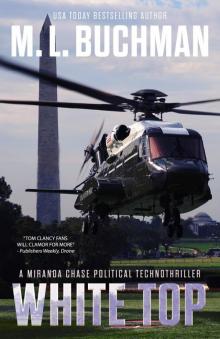 White Top
White Top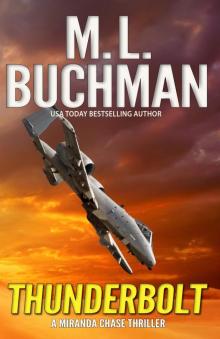 Thunderbolt
Thunderbolt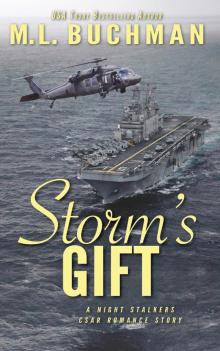 Storm's Gift
Storm's Gift The Complete Delta Force Shooters
The Complete Delta Force Shooters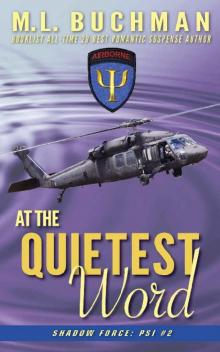 At the Quietest Word (Shadowforce: Psi Book 2)
At the Quietest Word (Shadowforce: Psi Book 2)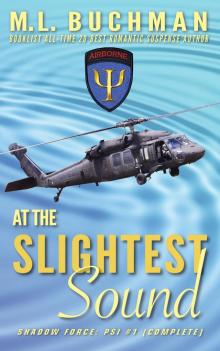 At the Slightest Sound
At the Slightest Sound Dilya's Christmas Challenge
Dilya's Christmas Challenge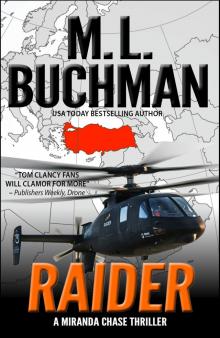 Raider
Raider Havoc
Havoc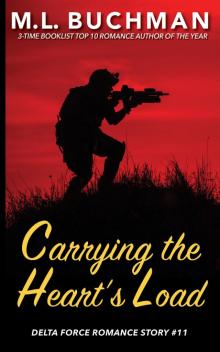 Carrying the Heart's Load
Carrying the Heart's Load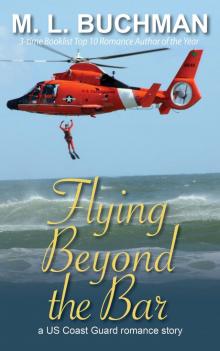 Flying Beyond the Bar
Flying Beyond the Bar Firelights of Christmas
Firelights of Christmas Where Dreams Are Well Done
Where Dreams Are Well Done Nathan's Big Sky
Nathan's Big Sky Heart of a Russian Bear Dog
Heart of a Russian Bear Dog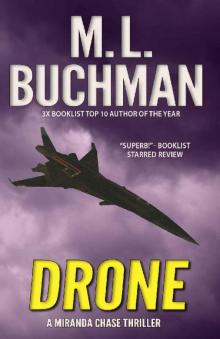 Drone: an NTSB / military technothriller (Miranda Chase Book 1)
Drone: an NTSB / military technothriller (Miranda Chase Book 1) Flower of Destiny
Flower of Destiny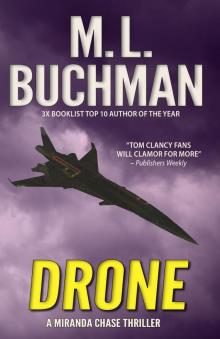 Drone
Drone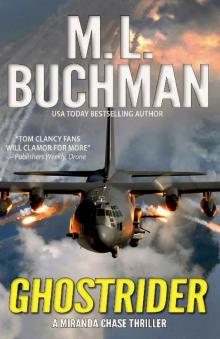 Ghostrider: an NTSB-military technothriller (Miranda Chase Book 4)
Ghostrider: an NTSB-military technothriller (Miranda Chase Book 4)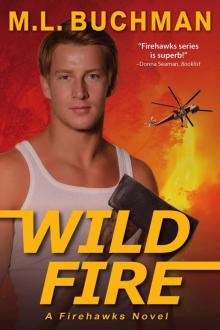 Wild Fire
Wild Fire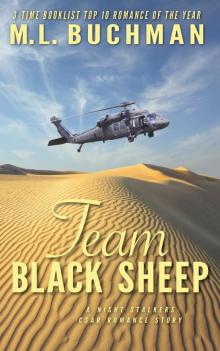 Team Black Sheep
Team Black Sheep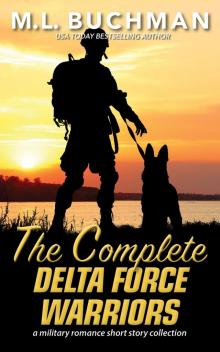 The Complete Delta Force Warriors
The Complete Delta Force Warriors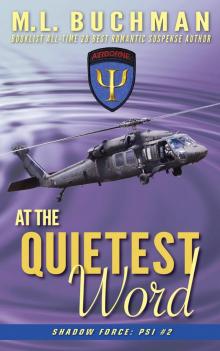 At the Quietest Word
At the Quietest Word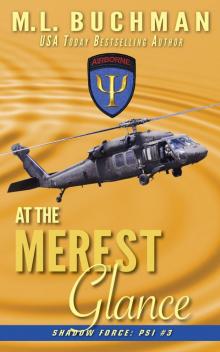 At the Merest Glance
At the Merest Glance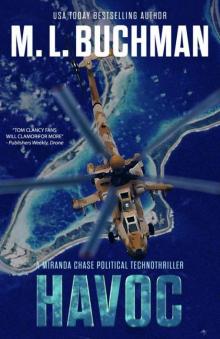 Havoc: a political technothriller (Miranda Chase Book 7)
Havoc: a political technothriller (Miranda Chase Book 7)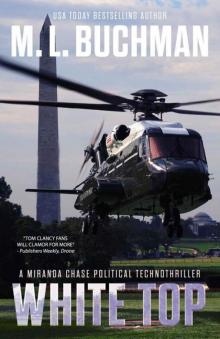 White Top: a political technothriller (Miranda Chase Book 8)
White Top: a political technothriller (Miranda Chase Book 8) Between Shadow and Soul
Between Shadow and Soul Island Christmas
Island Christmas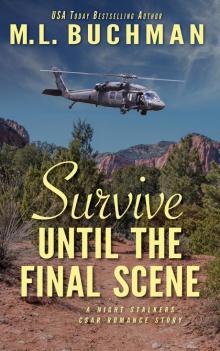 Survive Until the Final Scene
Survive Until the Final Scene Midnight Trust
Midnight Trust Return to Eagle Cove
Return to Eagle Cove Where Dreams Reside
Where Dreams Reside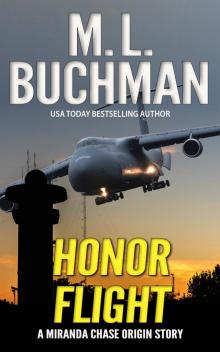 Honor Flight
Honor Flight Where Dreams Are Sewn
Where Dreams Are Sewn The Complete Hotshots
The Complete Hotshots Condor
Condor I Own the Dawn
I Own the Dawn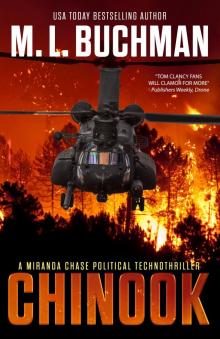 Chinook
Chinook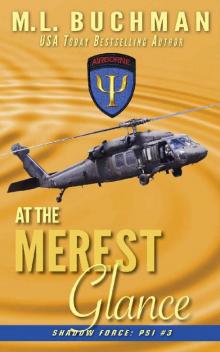 At the Merest Glance: a military paranormal romance (Shadowforce: Psi Book 3)
At the Merest Glance: a military paranormal romance (Shadowforce: Psi Book 3) Since the First Day
Since the First Day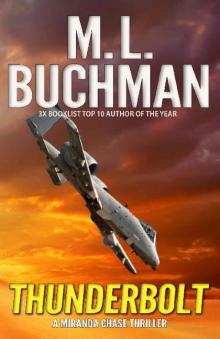 Thunderbolt: an NTSB / military technothriller (Miranda Chase Book 2)
Thunderbolt: an NTSB / military technothriller (Miranda Chase Book 2) For Her Dark Eyes Only
For Her Dark Eyes Only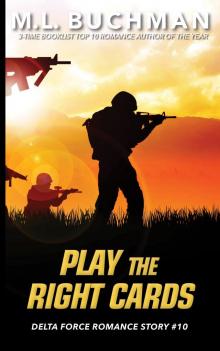 Play the Right Cards
Play the Right Cards Lost Love Found in Eagle Cove
Lost Love Found in Eagle Cove Big Sky Ever After: a Montana Romance Duet
Big Sky Ever After: a Montana Romance Duet Keepsake for Eagle Cove
Keepsake for Eagle Cove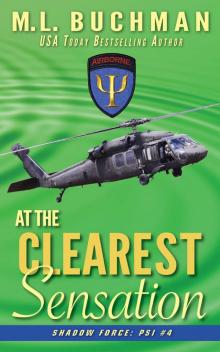 At the Clearest Sensation
At the Clearest Sensation The Ides of Matt 2015
The Ides of Matt 2015 When They Just Know
When They Just Know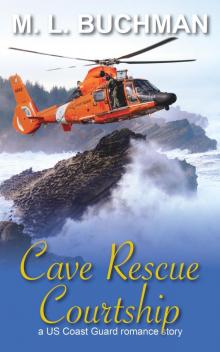 Cave Rescue Courtship
Cave Rescue Courtship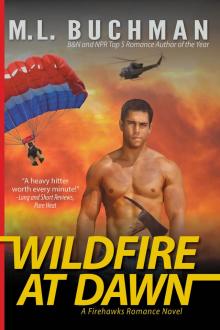 Wildfire at Dawn
Wildfire at Dawn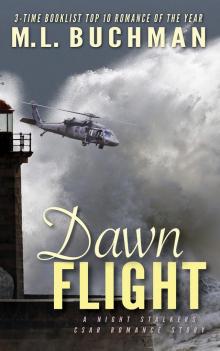 Dawn Flight
Dawn Flight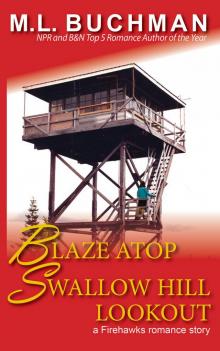 Blaze Atop Swallow Hill Lookout
Blaze Atop Swallow Hill Lookout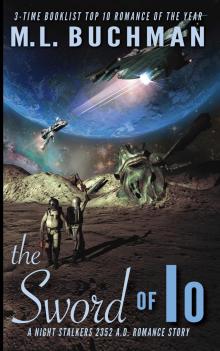 The Sword of Io
The Sword of Io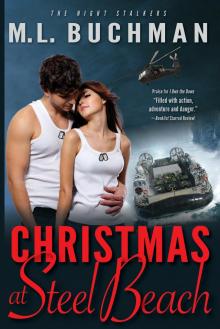 Christmas at Steel Beach
Christmas at Steel Beach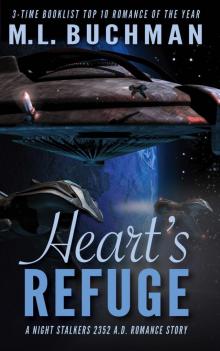 Heart's Refuge
Heart's Refuge By Break of Day (The Night Stalkers)
By Break of Day (The Night Stalkers) Kee's Wedding
Kee's Wedding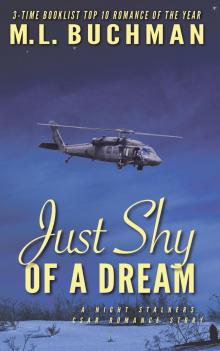 Just Shy of a Dream
Just Shy of a Dream Path of Love
Path of Love Ghost of Willow's Past
Ghost of Willow's Past Flash of Fire
Flash of Fire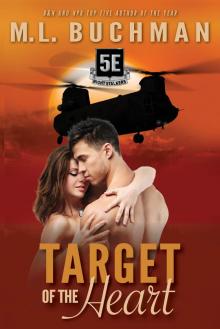 Target of the Heart
Target of the Heart Sound of Her Warrior Heart
Sound of Her Warrior Heart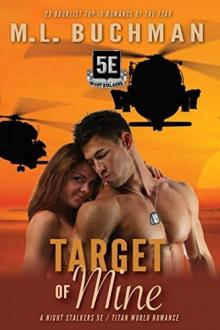 Target of Mine: The Night Stalkers 5E (Titan World Book 2)
Target of Mine: The Night Stalkers 5E (Titan World Book 2) The Complete Where Dreams
The Complete Where Dreams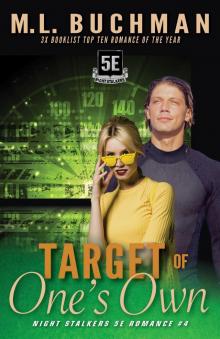 Target of One's Own
Target of One's Own For All Their Days
For All Their Days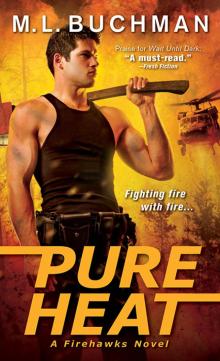 Pure Heat
Pure Heat Love's Second Chance
Love's Second Chance Target Engaged
Target Engaged Bring On the Dusk
Bring On the Dusk Wait Until Dark (The Night Stalkers)
Wait Until Dark (The Night Stalkers) Big Sky, Loyal Heart
Big Sky, Loyal Heart Welcome at Henderson's Ranch
Welcome at Henderson's Ranch Damien's Christmas
Damien's Christmas Flight to Fight
Flight to Fight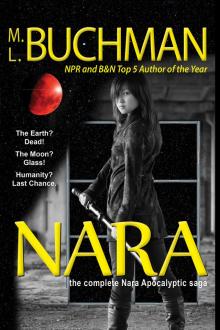 Nara
Nara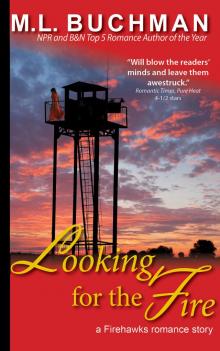 Looking for the Fire
Looking for the Fire Love Behind the Lines
Love Behind the Lines Peter's Christmas
Peter's Christmas In the Weeds
In the Weeds Christmas at Henderson's Ranch
Christmas at Henderson's Ranch They'd Most Certainly Be Flying
They'd Most Certainly Be Flying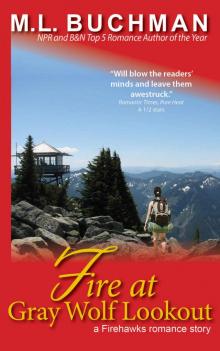 Fire at Gray Wolf Lookout (Firehawks Book 8)
Fire at Gray Wolf Lookout (Firehawks Book 8) Wildfire on the Skagit (Firehawks Book 9)
Wildfire on the Skagit (Firehawks Book 9)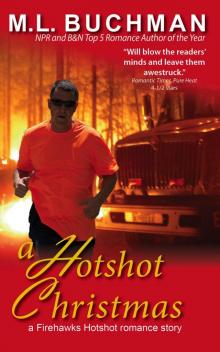 A Hotshot Christmas
A Hotshot Christmas Off the Leash
Off the Leash Where Dreams Books 1-3
Where Dreams Books 1-3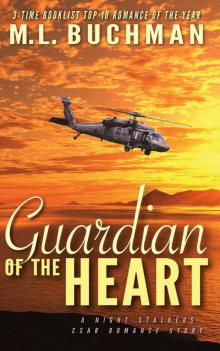 Guardian of the Heart
Guardian of the Heart The Ides of Matt 2017
The Ides of Matt 2017 Where Dreams Unfold
Where Dreams Unfold Twice the Heat
Twice the Heat Wild Justice (Delta Force Book 3)
Wild Justice (Delta Force Book 3) Flying Over the Waves
Flying Over the Waves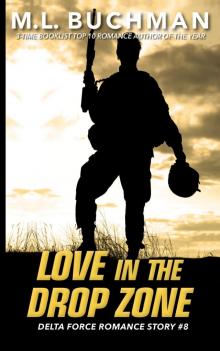 Love in the Drop Zone
Love in the Drop Zone I Own the Dawn: The Night Stalkers
I Own the Dawn: The Night Stalkers What the Heart Holds Safe (Delta Force Book 4)
What the Heart Holds Safe (Delta Force Book 4) The Christmas Lights Objective
The Christmas Lights Objective Road to the Fire's Heart
Road to the Fire's Heart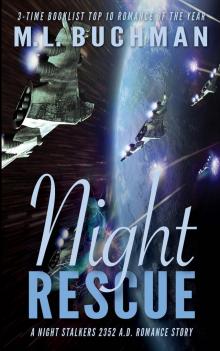 Night Rescue
Night Rescue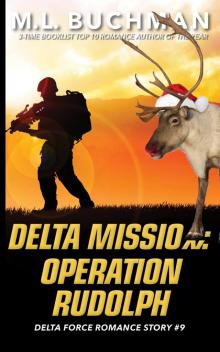 Delta Mission: Operation Rudolph
Delta Mission: Operation Rudolph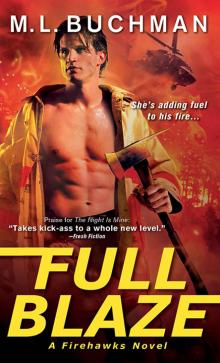 Full Blaze
Full Blaze Night Is Mine
Night Is Mine Lightning Strike to the Heart
Lightning Strike to the Heart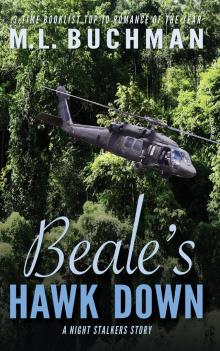 Beale's Hawk Down
Beale's Hawk Down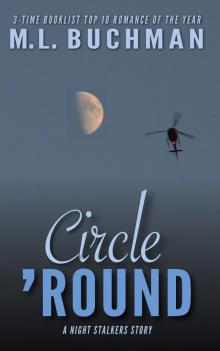 Circle 'Round
Circle 'Round Cookbook from Hell Reheated
Cookbook from Hell Reheated Zachary's Christmas
Zachary's Christmas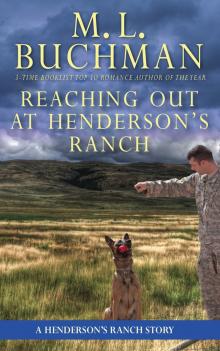 Reaching Out at Henderson's Ranch
Reaching Out at Henderson's Ranch Fire Light Fire Bright
Fire Light Fire Bright The Ides of Matt 2016
The Ides of Matt 2016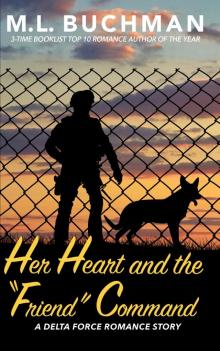 Her Heart and the Friend Command
Her Heart and the Friend Command On Your Mark
On Your Mark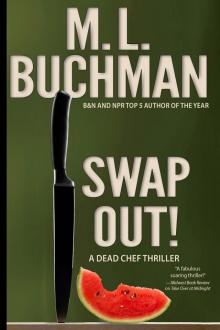 Swap Out!
Swap Out! Heart of the Cotswolds: England
Heart of the Cotswolds: England The Phoenix Agency_The Sum Is Greater
The Phoenix Agency_The Sum Is Greater Wildfire at Larch Creek
Wildfire at Larch Creek Target Lock On Love
Target Lock On Love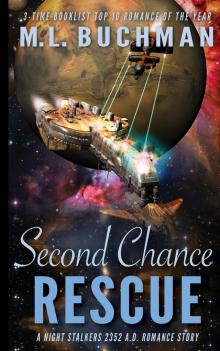 Second Chance Rescue
Second Chance Rescue Where Dreams Are Written
Where Dreams Are Written First Day, Every Day
First Day, Every Day Christmas at Peleliu Cove
Christmas at Peleliu Cove Heart Strike
Heart Strike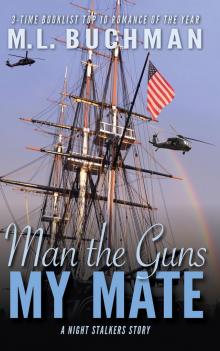 Man the Guns, My Mate
Man the Guns, My Mate Emily's Wedding
Emily's Wedding Daniel's Christmas
Daniel's Christmas Frank's Independence Day
Frank's Independence Day The Phoenix Agency: The Sum Is Greater (Kindle Worlds Novella)
The Phoenix Agency: The Sum Is Greater (Kindle Worlds Novella) Roy's Independence Day
Roy's Independence Day